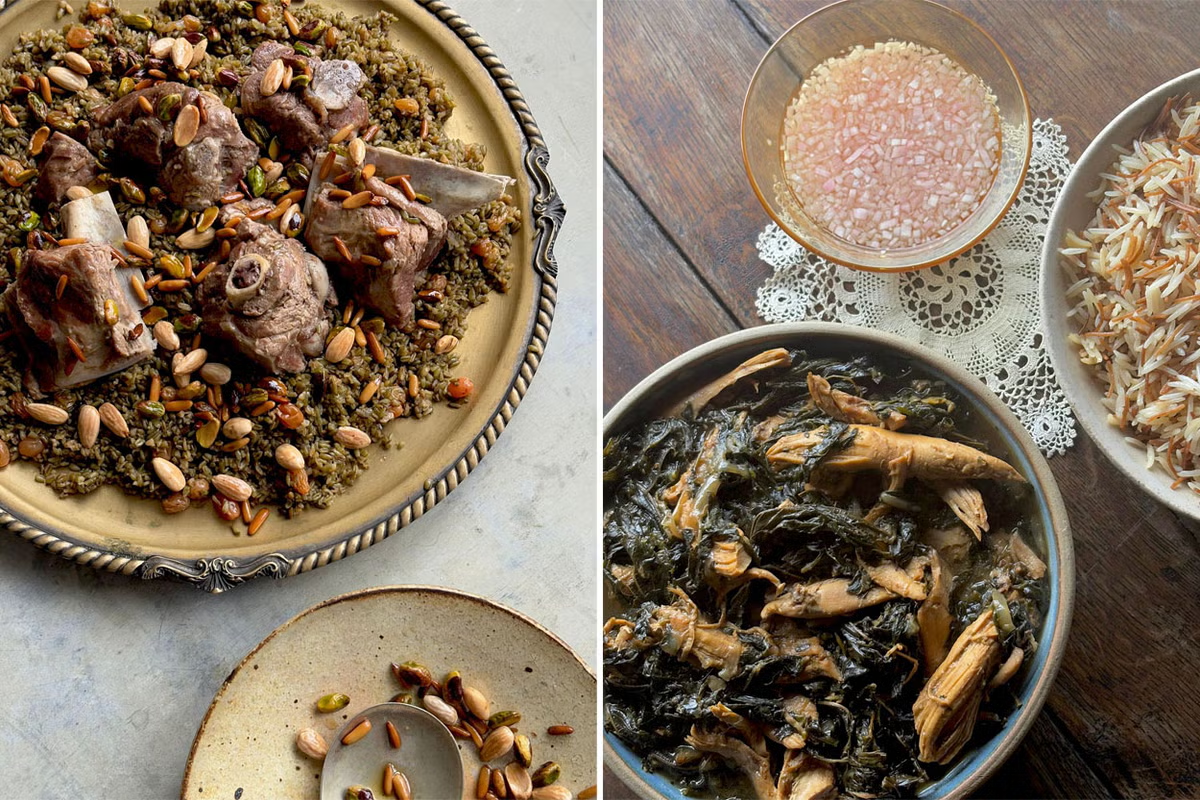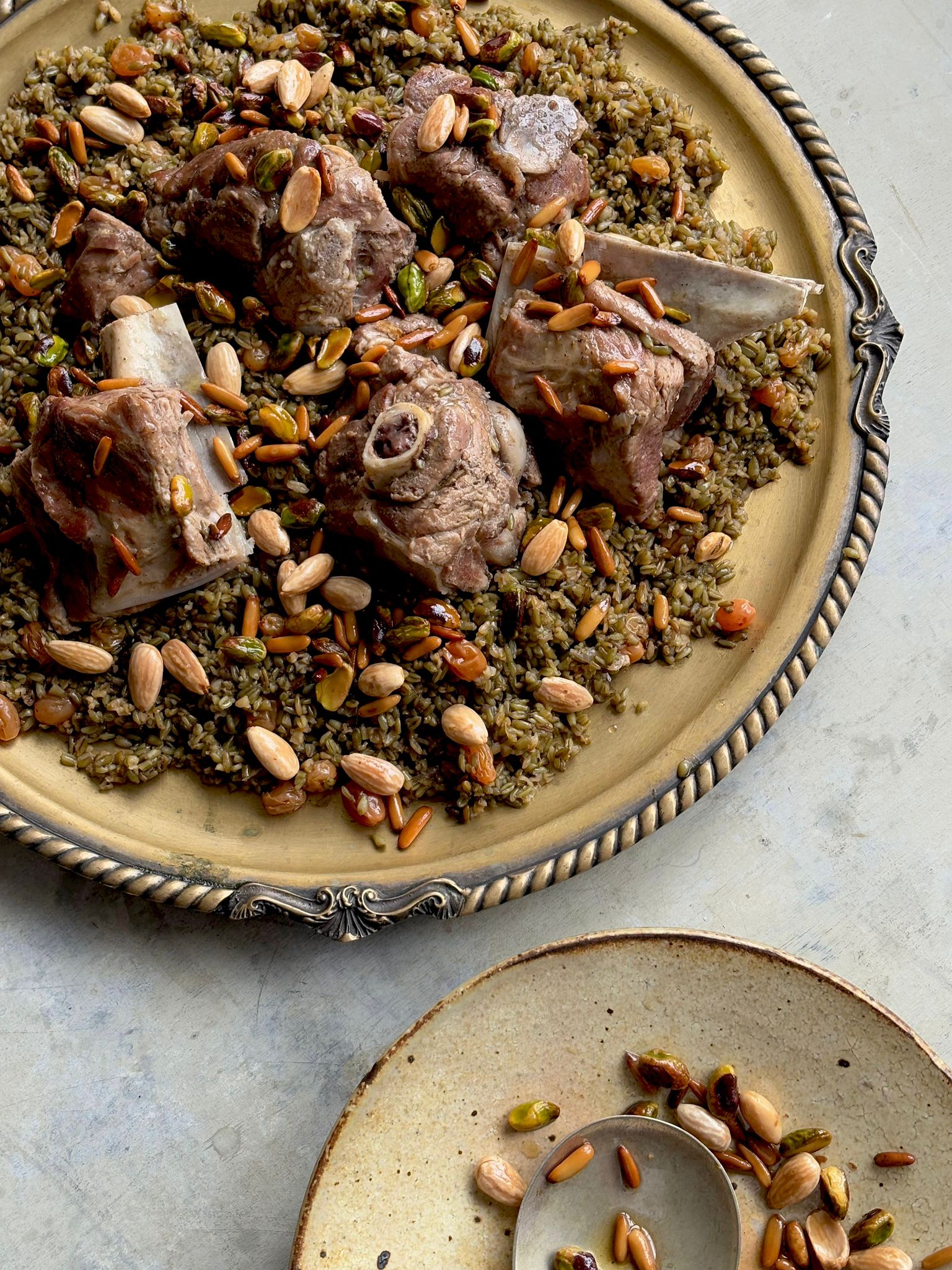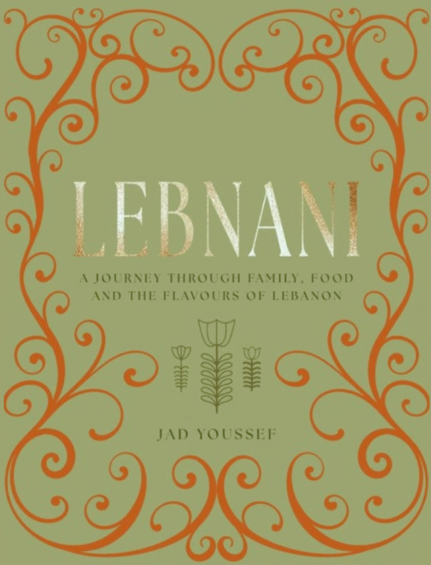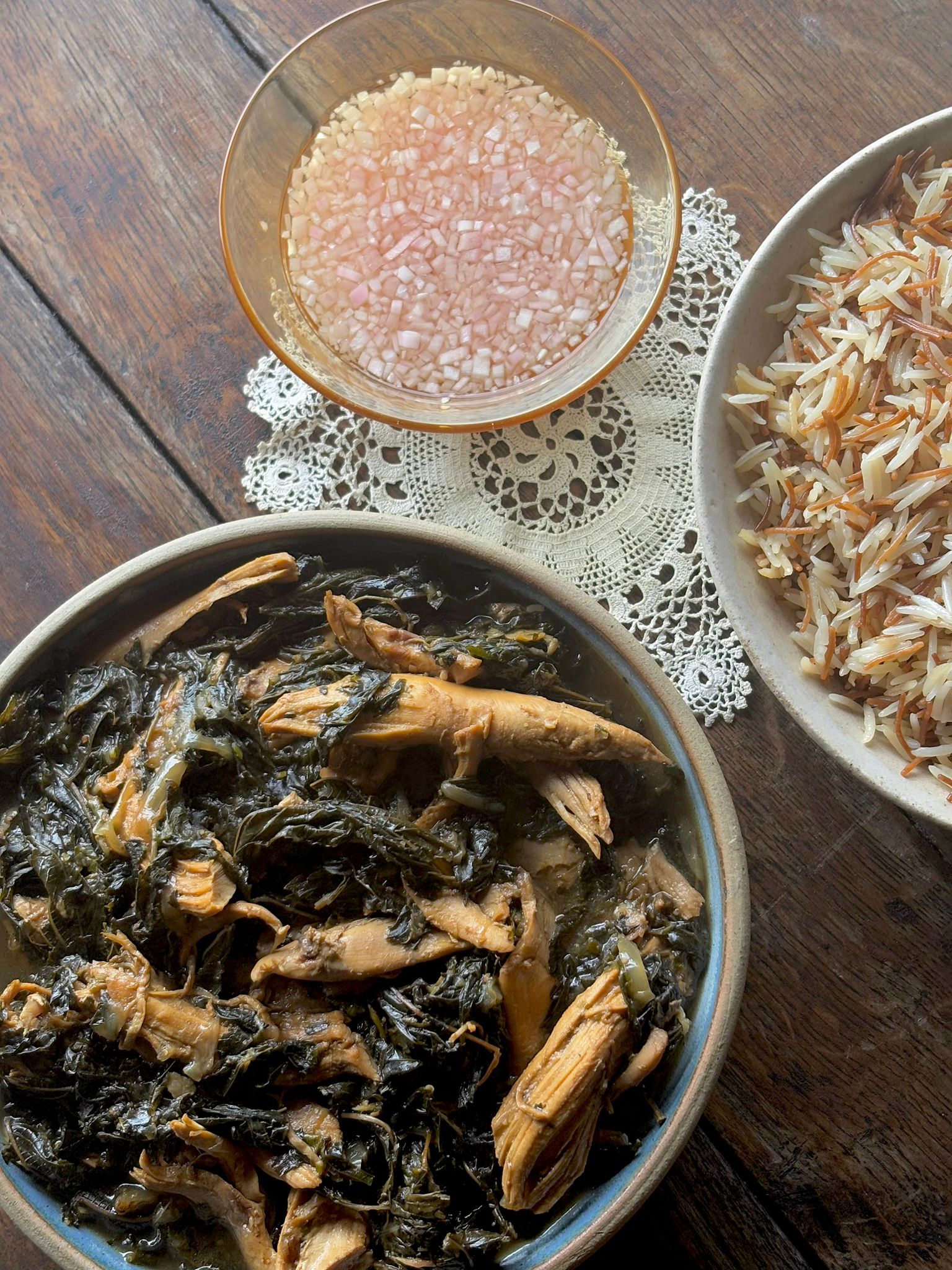Warm up this autumn with 3 comforting Lebanese dishes from ‘Lebnani: The Cookbook’

There’s a particular kind of comfort in Lebanese home cooking – the kind that fills the kitchen with the scent of toasted nuts, butter and spice long before anything reaches the table.
It’s the smell of freekeh roasting in samneh, of garlic and coriander softening in oil, of something bubbling slowly on the stove while family drifts in and out, hungry and expectant.
For chef Jad Youssef, that scent is memory itself. After earning a devoted following with his Soho stalwart Yalla Yalla, he brought his bold, ingredient-led mezze and Beirut’s bustling spirit to Surrey with Lebnani – a restaurant now proudly carrying its first AA Rosette and the kind of praise that food critics dream of. Jay Rayner called it “small but perfectly judged”, which is exactly what Youssef seems to do best: intimate, soulful cooking that balances precision with heart.
Next spring, that same warmth will find its way into homes with Lebnani: The Cookbook, successfully crowdfunded earlier this year. More than just a collection of recipes, it’s a love letter to Beirut’s food culture – its generosity, its patience, its stories.
Here Youssef shares a few of the dishes that mean most to him: freekeh b’lahmé, a smoky roasted grain with lamb and sultanas; mloukhieh, an earthy chicken and jute leaf stew perfumed with coriander; and rez m’falfal, the golden vermicelli rice that anchors every Lebanese table.
Comfort, in this cuisine, isn’t just about food – it’s about home.
Freekeh b’Lahmé

“Freekeh is one of the oldest dishes in our cuisine. It dates back to ancient times, when farmers would harvest green wheat, dry it over wood fires, and rub it to remove the husk, which is why it’s called freekeh, from the word farak (to rub).
“It was a dish of the land, full of nutrients, high in fibre and protein, designed to feed large families. I remember my mother buying it from the old souks in Beirut – she always chose the greenest, smokiest grains.
“In Békaa and Zahlé, they cook it in a rustic style, while in Beirut, you find the more refined version with bone-in lamb shoulder and toasted nuts. Every house has its way –but the scent of freekeh toasting in butter is one that brings everyone to the table.”
Serves: 4-5
Ingredients:
For the lamb and broth:
60-80ml olive oil
1.5kg bone-in lamb shoulder, cut into 200-250g chunks
3-3.5L cold water
2 large brown onions (about 400g), halved
2 bay leaves
1 cinnamon stick
6-8 whole cardamom pods
1 tsp whole black peppercorns
1½ tsp fine sea salt
For the freekeh:
500g whole freekeh
3 tbsp olive oil
4 tbsp butter or samneh
1 medium brown onion, finely diced
5 garlic cloves, finely grated
100g golden sultanas
2½ tsp baharat (Lebanese 7 spices)
1½ tsp fine sea salt, or to taste
½ tsp freshly ground black pepper
1-1.2L hot lamb broth (approx – see above)
4 tbsp almonds, whole or halved
4 tbsp pine nuts
2 tbsp pistachios
Method:

To prepare the lamb and broth:
1. Heat the oil in a large pan over medium heat.
2. Add the lamb and brown well on all sides, then cover with the cold water and bring to a boil. Skim off any foam that forms on the surface and when the water is clear, add the remaining ingredients.
3. Lower the heat, cover and simmer for 2-2.5 hours until the lamb is tender. Check every 30 minutes.
3. Once done, remove the chunks of lamb and set aside. Strain and reserve the broth, keeping it hot.
To prepare the freekeh:
4. While the lamb is cooking, wash the freekeh thoroughly, rinsing the grains 3 or 4 times until the water runs clear. Pick out any dark pieces or stones. Drain well.
5. In a large heavy pot, heat the olive oil with half of the butter or samneh. Add the onion and garlic and cook for 3-4 minutes until soft and golden, then add the freekeh and stir gently for 5-7 minutes until fragrant and lightly nutty. Stir in the golden sultanas.
6. Add the baharat, salt, and black pepper to the pot and stir well. Add approximately 1-1.2 litres of the reserved hot broth – enough to cover the freekeh by 1 or 2cm. Bring to a boil, cover, lower the heat, and simmer gently for 20-25 minutes, until the freekeh is tender and the broth has been absorbed. The grains should stay fluffy and separate, with a smoky aroma. Rest the freekeh, covered, for 10 minutes, then fluff gently with a fork.
7. In a small pan, heat the remaining butter or samneh and toast the almonds, pine nuts and pistachios until golden. Watch carefully to make sure the nuts don’t burn. Tip them onto a plate lined with kitchen paper and leave to cool slightly.
8. Arrange the fluffy freekeh on a large platter. Place the lamb pieces on top or on the side. Scatter the toasted nuts generously over the freekeh. In our house, we always poured a little extra broth over the platter too – pure comfort.
Notes:
- Bone-in lamb shoulder always gives the best flavour.
- Do not skip toasting the freekeh – this brings out its smoky flavour.
- The freekeh must be fluffy – never mushy.
Mloukhieh

“For many Lebanese families, dried mloukhieh (mallow leaf) is the most traditional way to prepare this dish. In the villages, fresh leaves were hung and dried in summer, then stored in cloth bags to cook with all year.
“My mother always preferred the dried leaves because they have a deeper flavour and the texture is lighter, almost silky. I remember her soaking them in the morning, the kitchen filling with the smell of coriander and garlic as the mloukhieh simmered later in the day. The table would be set with rice, onion, lemons, and bread – nothing fancy, just good home-cooked food.”
Serves: 4-5
Ingredients:
For the broth:
1-1.2kg whole chicken
2-2.5L cold water
1 large brown onion (about 200g), halved
2-3 bay leaves
1 cinnamon stick
4 cardamom pods
2 cloves
For the stew:
100g dried mloukhieh leaves
3 medium brown onions (about 300g), peeled and quartered
12 large garlic cloves, peeled
60-80ml olive oil
1 large bunch fresh coriander (about 80g), leaves washed, picked and chopped
1½ tbsp ground coriander
1½ tbsp fine sea salt, or to taste
½ tsp freshly ground black pepper
Juice of 2 large lemons
To serve:
Lebanese rice with vermicelli
1 white onion, finely diced and pickled in grape vinegar for 10-15 minutes
Lemon wedges
Warm khobez
Method:
1. Place the chicken in a large bowl and rinse thoroughly under cold water. Transfer to a large pot, cover with 2 litres of cold water, and bring to a boil over medium heat. As soon as the broth comes to a boil, skim off any scum or foam that rises to the surface.
2. Once the broth is clear, add the onion, bay leaves, cinnamon stick, cardamom pods, and cloves. Lower the heat and simmer gently for about 50-60 minutes, or until the chicken is tender and cooked through. Remove the chicken and set aside. Strain the broth through a fine sieve and return it to the pot. Discard the aromatics left in the sieve.
3. While the chicken is cooking, soak the dried mloukhieh leaves in cold water for 45-60 minutes, changing the water once or twice. Drain well and gently squeeze out the excess water. Spread the leaves on a clean kitchen towel to dry slightly.
4. Preheat the oven to 180C (160C fan). Place the quartered onions and whole garlic cloves on a small baking tray, then drizzle with olive oil and season with salt and ground coriander. Roast for about 25-30 minutes, until soft and golden. Transfer to a food processor and blitz to a coarse paste.
5. Heat the olive oil in a large frying pan over medium heat. Add the roasted onion and garlic paste and sauté gently for 2-3 minutes until fragrant. Add the finely chopped coriander and cook for another 2 minutes until the mixture is aromatic and softened. Add the drained mloukhieh leaves to the pan and sauté for 3-4 minutes, stirring gently.
6. Transfer the sautéed mloukhieh mixture to the clear chicken broth. Simmer gently for 20-25 minutes, stirring occasionally. Meanwhile, shred the cooked chicken by hand into large pieces and add them back to the pot. Simmer for another 5-10 minutes to bring the flavours together. Season with ground coriander, salt, black pepper, and lemon juice. Taste and adjust as needed – mloukhieh should have a bright, lemony finish.
7. Serve hot with Lebanese rice, pickled diced onion, lemon wedges, and warm khobez.
Notes:
- Roasting the onion and garlic deepens the flavour beautifully – this small step makes a big difference to the dish.
- Always use plenty of coriander, which gives mloukhieh its true Lebanese soul.
- Dry mloukhieh should be soaked and drained properly to preserve its delicate texture.
- Always serve this dish with plenty of lemon wedges – the balance of flavours depends on it.
Rez m’Falfal
“In every Lebanese home, rice with vermicelli is the standard companion to tabkha. It may be simple, but it must be done with care. The rice must be light and fluffy, and the vermicelli golden, never greasy or heavy.
“In our house, my mother cooked this almost daily. The sound of the vermicelli toasting in olive oil or samneh was the first sign that lunch was coming. It is not just a side dish, though – it soaks up the broth of the tabkha, balances strong flavours, and completes the table.”
Serves: 4-5
Ingredients:
2 tbsp olive oil, 2 tbsp samneh or a mix of both (this is authentic and gives the best flavour)
100g fine wheat vermicelli
300g basmati or long-grain rice, washed and soaked in cold water for 20 minutes, then drained
600ml boiling water, or light chicken broth if you want extra flavour
2 tsp fine sea salt, or to taste
Method:
1. Heat the olive oil, samneh or both in a heavy-bottomed pot over medium heat. Add the vermicelli and sauté gently, stirring constantly, until it turns a rich golden brown. Watch it carefully so the vermicelli does not burn.
2. Once the vermicelli is evenly golden, add the drained rice. Stir gently to coat the rice with the oil and vermicelli. Add the boiling water and salt. Stir once to combine, then bring back to a gentle boil.
3. Turn the heat down as low as possible, cover the pot tightly with a lid, and let it simmer undisturbed for 25-28 minutes. Do not lift the lid or move the pot during cooking.
4. When the rice is ready, it should be tender, the grains separate and fluffy. Remove from the heat and let it rest, covered, for 5 minutes.
5. Fluff gently with a fork before serving. Serve hot with your tabkha, mloukhieh, fasoulia, and bemieh – this is the true Lebanese way.
Notes:
- Using samneh and olive oil together gives the best flavour.
- Always toast the vermicelli carefully – it gives the rice its signature aroma.
- Basmati rice is commonly used today, but in the old days we used local long-grain rice. Both are excellent.
Recipes from ‘Lebnani: The Cookbook by Jad Youssef’ (available February 2026).
[title_words_as_hashtags




